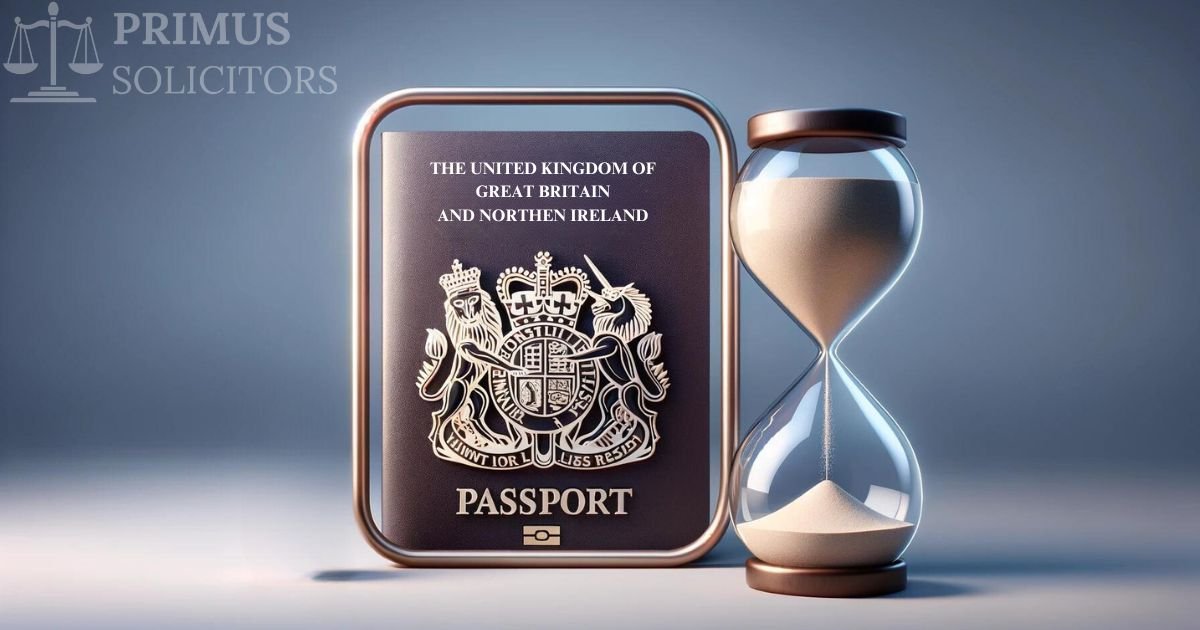Understanding the New ILR 10-Year Long Residency Rules and Requirements
The Indefinite Leave to Remain (ILR) via the 10-Year Long Residence route has been a key route for individuals who have lived in the UK continuously for 10 years. As of April 11, 2024, significant changes were implemented through the introduction of a new Appendix Long Residence. These changes are a mix of both favourable and unfavourable changes depending on applicants’ specific circumstances.
Overview of ILR and the 10-Year Long Residence Route
Indefinite Leave to Remain (ILR) allows individuals the right to live and work in the UK without any time restrictions. The 10-Year Long Residence route provides a genuine, viable, and legal basis for those who have maintained a lawful and continuous residence in the UK for at least ten years. However, this route has been under scrutiny and has seen numerous legal challenges, primarily due to its complexity and the vagueness of its requirements.

New Changes to the 10-Year Long Residence ILR Rules
Requirement to Have Current Permission for 12 Months or More
One of the most significant amendments introduced was the requirement for applicants to have held their current permission to reside in the UK (if granted after April 11, 2024) for a minimum of 12 months. This change aligns the 10-Year Long Residence route with broader settlement requirements, reducing flexibility and potentially delaying applications. Previously, the duration requirement of the current permission did not strictly necessitate a 12-month period, which offered more leeway and flexibility for applicants approaching their 10 year residency mark.
Impact of the New Requirement on Applicants
This modification could particularly affect those who were close to qualifying for ILR under the previous rules, as they now must ensure their current visa or permission spans at least one year at the time of their application. This may result in unexpected delays or the need for visa extensions under an FLR Appendix, for those who were preparing to apply shortly after reaching their 10 residency.
How to Apply for Indefinite Leave to Remain (ILR) on the 10-Year Long Residence Route in the UK
Applying for Indefinite Leave to Remain (ILR) after residing in the UK for 10 years requires several key steps to ensure your application is processed smoothly.
Step 1: Complete the Online Application
Start by filling out the appropriate online form designed specifically for the ILR application. It’s crucial to review the information you enter to confirm it is both accurate and up-to-date.
Step 2: Schedule Your Biometrics Appointment
During the application process, you will need to schedule an appointment at a UK Visa and Citizenship Application Services (UKVCAS) center. This is necessary for collecting your biometric data—fingerprints and photographs—which play an important role in your identification.
Step 3: Prepare and Submit Supporting Documents
You’ll need to gather various documents required for your ILR application. You have two options for submitting these:
- Upload Online: Submit your documents digitally using the online service available during your application.
- In-Person Submission: Alternatively, bring your documents to your biometrics appointment.
Important Note: Travel Restrictions
While your ILR application is under review, it is imperative that you remain within the UK. Traveling outside the country during this period will result in the termination of your application. This restriction remains in effect until a final decision is rendered.
By carefully following these steps, you can improve the chances of a successful ILR application based on your 10-year residence in the UK.
Steps to Take if Your ILR Application is Refused
Facing a refusal for your Indefinite Leave to Remain (ILR) application under the 10-year long residence route can be daunting. However, understanding your options and acting promptly is key to navigating this situation effectively.
Common Reasons for Refusal
Before delving into the steps you can take, it’s important to recognize why your application might have been denied. Typical reasons include:
- Inadequate proof of continuous lawful residence.
- Violating the allowed absence limits during your residency.
- Not meeting language proficiency or failing the Life in the UK test.
- Concerns related to public interest or your character.
Immediate Actions
Upon receiving your refusal letter, scrutinize the reasons given for the decision. This information is crucial as it will guide your next steps. Consulting an immigration expert can provide clarity on the nuances of the refusal and help determine a strategic course of action.
Options Available
- Appeal the Decision
- Eligibility: First, confirm if you qualify to appeal based on the criteria outlined in your decision letter.
- Process: If eligible, you can appeal to the first-tier immigration tribunal, where you have the chance to present new evidence or argue errors in the original assessment.
- Outcome: The tribunal will either support or overturn the initial decision. If the outcome is not favorable, a further appeal to a higher tribunal may be possible.
- Advice: Engaging an experienced immigration solicitor is strongly recommended to enhance your appeal process.
- Judicial Review
- When to Consider: If appealing is not an option or if the appeal fails, a Judicial Review could be the next step.
- Nature of Review: This process involves a judge reviewing the legality of the decision rather than the merits. The focus is on identifying any procedural errors or unfairness.
- Legal Assistance: Given the complexity of judicial reviews, involving a skilled solicitor is crucial to navigate this avenue effectively.
Final Thoughts
While a refusal is challenging, understanding the reasons behind it and following a structured approach can open doors to potentially overturn or reconsider your case. Always seek expert legal advice to ensure you’re making informed decisions throughout this process.
English Language & Life in the UK Test for Settlement on the Long Residence Route
The requirement to demonstrate the ability to communicate in English and pass the Life in the UK test is still required under the new Long Residence Appendix for those applying for ILR under the 10-Year Long Residence route. While the Life in the UK test requirement remains unchanged, there has been a relaxation in the English language requirement. Applicants can now fulfil this requirement using evidence of having passed English language tests at the GCSE or A-Level, level.
Ongoing Requirements and Adjustments
It is important for applicants to understand that while some aspects of the application process have been simplified, the fundamental requirement to integrate into British society, as demonstrated through these tests, are still need. The adjustments overall aim is to streamline the process and reduce the burden on applicants who already possess these qualifications from their studies in the UK.
Exceptions to the 10-Year Lawful Residence Requirement in the UK
When it comes to securing indefinite leave to remain in the UK, there can be flexibility around the 10-year lawful residence requirement under certain conditions. If there are brief interruptions in your visa history, the Home Office may still consider you eligible by granting discretion in specific situations:
- Departures Before 24 November 2016: If you left the UK after your visa expired and reapplied for entry clearance within 28 days of that expiration, you might still qualify. Importantly, you need to have returned to the UK within six months after being granted the new entry clearance.
- Applications After 24 November 2016 – Paragraph 39(E): This clause addresses short-term gaps in lawful residence. If your application was submitted within two weeks of your visa expiring, the Home Office might overlook this exceeding period. They will evaluate whether there was a compelling reason for the overstay, or if the application was made within 14 days of a previous one being refused or under conditions like the extension of leave due to the Immigration Act 1971, or within the timeframe for administrative reviews or appeals.
- Concurrence with Other Residence Criteria: Even with these exceptions, it’s essential to meet other requirements that pertain to lawful residence to strengthen your case for remaining in the UK.
These exceptions provide some leeway for individuals who have made timely efforts to maintain their immigration status but have had short lapses due to unavoidable circumstances.
Conclusions
The recent changes to the ILR 10-Year Long Residence rules are a mixed bag. On one hand, they simplify and potentially expedite the process for future applicants, especially those with higher absences. On the other hand, they pose significant challenges for those who were nearing the completion of their residency under the previous regulations.
For new applicants, the increased flexibility in handling absences and the inclusion of EEA treaty rights as part of the qualifying period are substantial improvements. However, for those who have built their lives around the older framework, particularly EEA nationals and those with gaps in their immigration status, the transition may be fraught with complications and require careful legal navigation.
The closure of the historic 10-year ILR route for EEA citizens and the stringent conditions on continuous residence underscore the necessity for timely and accurate application submissions under the new rules.
How Can Primus Solicitors Immigration Team Help you?
For those unsure about how these changes affect their specific circumstances, or who need assistance with understanding the complex UK immigration system and law, instructing one of our immigration specialists advice will be beneficial. Our team of immigration lawyers at Primus Solicitors are ready to provide you with expert guidance and support to ensure that your application for ILR has the best possible chances of being granted.


